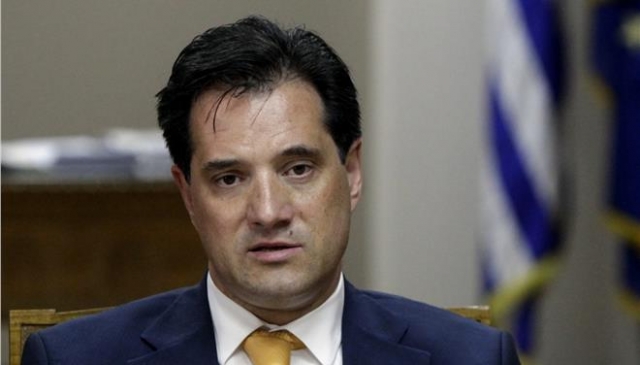Doctors at the National Organization for the Provision of Healthcare Services had prescribed medicines and directions for tests by specialists to deceased patients. The Ministry of Health will check at least 60 doctors who seem to have been issuing prescriptions even 200 days after the death of insured patients.
By order of Adonis Georgiadis, each separate case is being inspected in order for the penalties provided to be enforced.
According to the Minister, these cases are not isolated. A cross-check of random numbers in the registers of the social security service and of death certificates issued have detected and reported them over the past three months.
This is an illegal activity, regardless of whether it involves a doctor or a relative who had used the health booklet of the deceased. According to the Ministry of Health, the damage to the National Organization for the Provision of Healthcare Services amounts to hundreds of thousands of euro.

Adonis Georgiadis states that the relevant authorities are checking a large number of cases of prescription abuse at the National Organization for the Provision of Healthcare Services, including nearly 87 orthopaedists, pathologists and cardiologists, who seem to have prescribed more medications and directions for tests than their colleagues have. A typical example is an orthopaedist in Larissa who had issued prescriptions to the amount of 400 thousand euro within a month.
During the meeting with the supervisory Troika the Minister of Health has informed that he will carry out a series of checks in the field of pharmaceutical care as well as of hospital care provided by private hospitals to patients insured at the National Organization for the Provision of Healthcare Services.
An agreement with the Troika has been reached, namely that pharmaceutical costs will not exceed 2 billion euro in 2014 (compared with 2.3 billion this year).
40% reduction in the price of generic medicines
The Minister has presented to the supervisory Troika a new pricing system for generic medicines. It affects off patent and generic medicines, the price of which will be reduced by 30 to 40%.
According to the system which is expected to be introduced soon, a medicine with an expired patent will be sold at a price equal to the average value of the three lowest prices in Europe. If this average price exceeds 50% of the price of the medicine while it was protected by a patent, the new price will be set at 50% of the old one.
The price of generic medicines will be 65% of the price of off patent medicines (80% today). The system will introduce the so-called "dynamic pricing" which will reduce the price of a generic medicine by 1 % for every 250,000 packages sold to insured patients. The reduction will gradually reach 20 % when the sales of the medicine reach 5 million packages.
The new pricing will affect the prices of generic medicines determined after 1 January 2012. Regarding the medicines whose prices were established before 31 December 2011, the decrease will be determined by a ministerial decision. As for cheap medicines at a price of 5-6 euro, their price will be protected and will depend on the parameter of "daily medical expenses" (0.4 euro).
In order to achieve the target of 60% of sales of generic medicines, the Ministry of Health will provide incentives for insured persons (half price), pharmacists (reduced discount) and physicians (options are considered).
Vitamins at the supermarket
Supermarkets will offer nutritional supplements and vitamins. The Ministry of Health expects to receive the relevant list from the national organization for medicines, which, however, will not include medicines, regardless of whether they are sold with or without a prescription.
President of the Hellenic Union of Pharmacists Kyriakos Teodosiadis stressed yesterday that medicines are not consumer goods and that their uncontrolled sale is dangerous to public health.